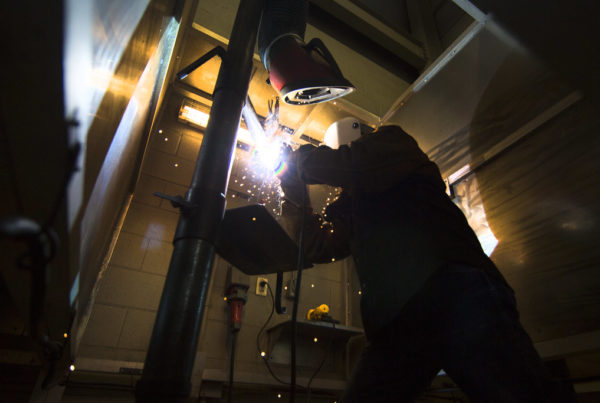South Texas Democratic Rep. Ryan Guillen announced Monday he will switch to the Republican Party. The last legislative party switch in Texas came ten years ago, when another South Texas Democrat jumped ship for the GOP.
Mark Jones is a fellow in political science at the Baker Institute at Rice University. He told Texas Standard the district Guillen represents was redrawn during the recent legislative special session to be more favorable to a Republican candidate.
Listen to the interview above or read the transcript below.
This transcript has been edited lightly for clarity:
Texas Standard: Are you surprised by yesterday’s news or the manner in which it was announced? it’s been almost 10 years since the last time a state lawmaker flipped sides, and that was also a South Texas Democrat joining the GOP.
Mark Jones: Not really. When the districts were drawn. Rep. Guillen’s district was drawn to be very Republican, and that sent a signal that there had probably been some back channel negotiations between him and the Republicans about eventually switching.
So you think this was baked in to the redistricting process?
Right. Some Texas Democrats are trying to pitch it that he was drawn into this district and had no choice but to run as a Republican. I think it’s actually the reverse. This district was drawn with his consent, with the idea that he would eventually be switching. We have to keep in mind that Rep. Guillen, over the past 10 years, has been the most conservative Democrat in every session, except one when he was the second most conservative Democrat. So he’s somebody who’s an ideological outlier in his party, and much closer to centrist Republicans than he is to centrist Democrats.
I know you’ve long analyzed voting records of the members of the Texas House and Senate. Give us an example for if you could.
One way we can think about it is we look at the median Republican as the person who’s in the middle of the Republican delegation. Half of Republicans are on one side, half on the other. Rep. Guillen is closer to that Republican than he is to the comparable Democrat – the one who’s in the middle of the Democratic delegation. For instance, a good example would be that he’s closer to 25 Republicans than he is to the median House Democrat.
What does this say about the tenor of politics in South Texas? There’s been a lot of focus on 2022 in particular.
South Texas is a Democratic area – it’s dark blue, but it’s one where those Democrats are the most centrist or conservative Democrats. So of the 12 South Texas Democrats in the House, are all in the most conservative quartile of the Democratic Party. They’re Democrats that are very distinct from Democrats in Houston and Dallas and Austin. And they tend to hold much more conservative policies on Second Amendment rights, on abortion, on social, on welfare issues and on taxes.
Let me just read the headline from the Texas Tribune announcing this decision. “State Rep. Ryan Guillen switches to GOP in latest blow to South Texas Democrats.” Put that into context.
I think South Texas has historically been a bastion for Democratic votes, so Democrats could count on winning 80 or 75% of the vote there, and with President Trump winning close to 40% of the South Texas vote. It’s no longer that bastion.
Also, we’re starting to see some losses. [Republican] John Lujan won [a state House seat in San Antonio.]. He won a special election and flipped the Democratic seat. And now you have Rep. Guillen flipping that seat. And with the redistricting, there’s an open congressional seat that runs from McAllen up to Sequin, that the Republicans have drawn to give themselves a hope of flipping that seat as well. So an area that Democrats used to be able to take to the bank in terms of knowing they were going to win all those seats is now in play, at least for a few seats.
Do you see this moving the needle for Republicans or Democrats either way?
I think we take it as a very small but positive move for Texas Republicans. It’s also important for the Republican Party because we have to keep in mind that of their 83 representatives – now 84 was Rep. Lujan joining – only two are Latinos in a state where 40% of the population is Latino. So every additional Latino added to the Republican delegation makes it look a little more like Texas, although they still have a long way to go to come, even close to matching the demographics of the state.















